
Author: Editor

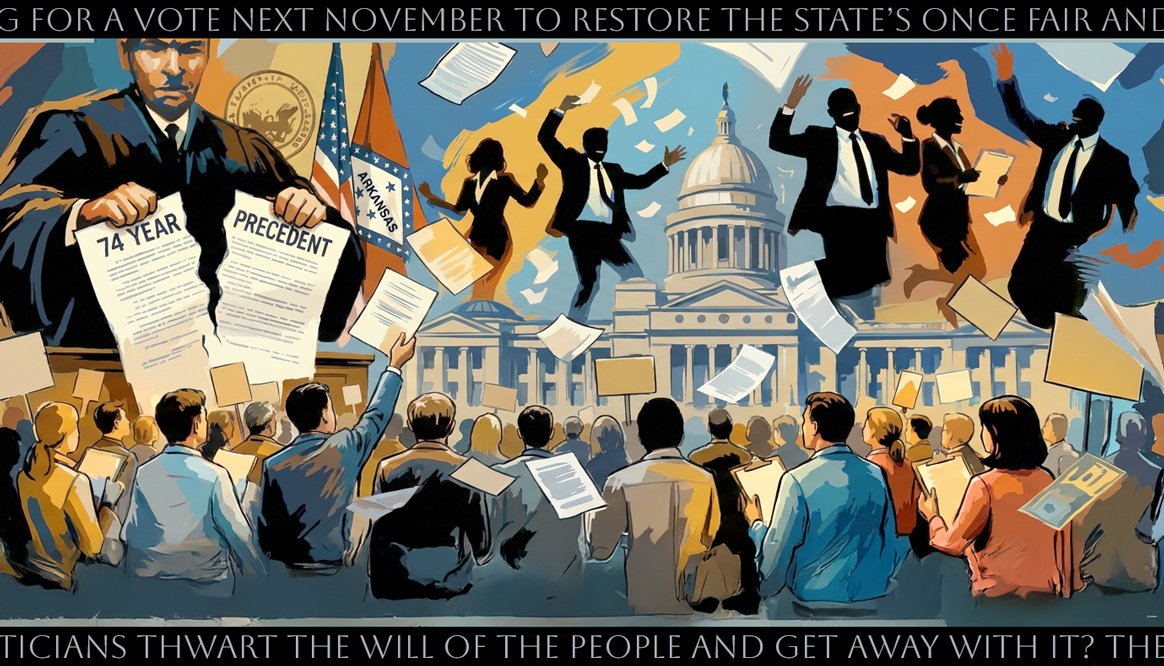
“Don’t lose hope.”
That’s what Bonnie Miller, president of the League of Women Voters of Arkansas, told her fellow Arkansans after the state’s highest court overturned a 74-year precedent. The justices ruled that constitutional amendments passed by citizens’ initiative can be amended or repealed by legislators with a two-thirds vote of both chambers.
Without the issue ever going back to voters.
Sure, this might seem to follow from a constitutional provision: “No measure approved by a vote of the people shall be amended or repealed by the General Assembly … except upon a yea and nay vote on roll call of two-thirds of all the members elected to each house of the General Assembly …”
But in 1951, the Arkansas Supreme Court declared it “inconceivable” that “the General Assembly could amend or repeal a constitutional amendment initiated by the people,” concluding that the term “measure” simply did not apply to a constitutional amendment. Today’s Supremes reversed this bedrock understanding, thereby empowering the legislature. (Note that the legislature is not seeking to overthrow their own constitutional amendments.)
For more than a decade, the Natural State’s solons have passed statute after statute — and even proposed several constitutional amendments — designed to destroy the citizen initiative process. Their attempts have been consistently defeated by voters at the polls. In addition, last month a federal judge finally struck down several burdensome restrictions that legislators had passed on petitioning.
Now there are also two ballot initiatives — one by Protect AR Rights and another by the League of Women Voters — petitioning for a vote next November to restore the state’s once fair and accessible ballot initiative process.
How long can politicians thwart the will of the people and get away with it? The people of Arkansas are finding out.
This is Common Sense. I’m Paul Jacob.
Illustration created with Nano Banana
See all recent commentary
(simplified and organized)
See recent popular posts
Bill of Rights Became Law
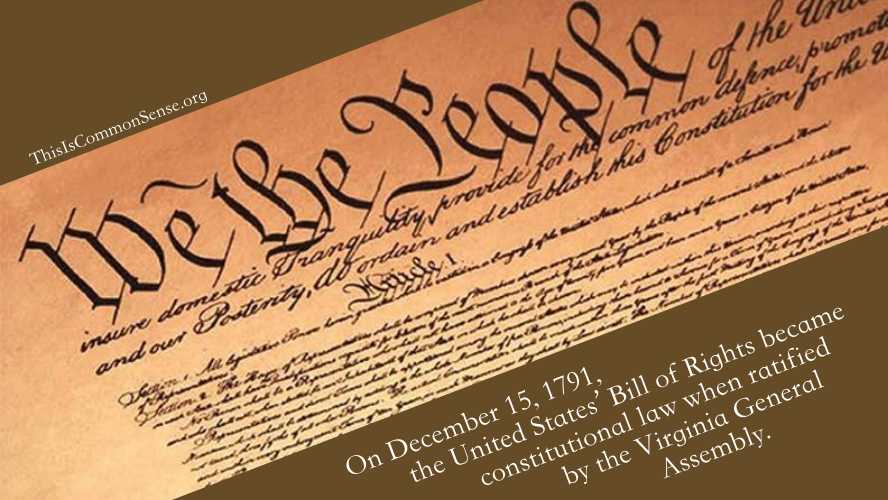
On December 15, 1791, the United States’ Bill of Rights became constitutional law when ratified by the Virginia General Assembly.
On December 15 in 1933, the Twenty-first Amendment to the United States Constitution officially became effective, repealing the Eighteenth Amendment that had, by enabling the Volstead Act, prohibited the sale, manufacture, and transportation of alcohol for any other than medical and industrial uses.
December 15 birthdays include that of Pehr Evind Svinhufvud af Qvalstad, 1861, first Head of State of independent Finland, serving in this capacity first as leader of the Senate and then as Protector, or Regent. In 1930 he became Prime Minister, and in 1931 was elected President, leaving office in 1937.
During the Civil War of 1918, his anti-socialist refugee government, Valkoiset, or “Whites,” opposed the “Reds,” a Social Democrat Party faction, for control of the government as it transitioned from Russian rule as a Grand Duchy, to independent status.
He died in 1944.
Thanksgiving 2025

Links to the past:
2009: “Paul Jacob says ‘Thank You.’”
2011: “Plymouth’s Great Reform”
2012: “A Rafter of Turkeys”
2013: “Give Thanks for First World Problems”
2016: “Thanksgivings, 1623 A.D.”
2017: “Ingrates of the Fourth Estate”
2018: “My thanksgiving is perpetual.”
2020: “The Saddest Thanksgiving”
2023: “One by One”
2024: “With appreciation, over the years.”
Doris Lessing
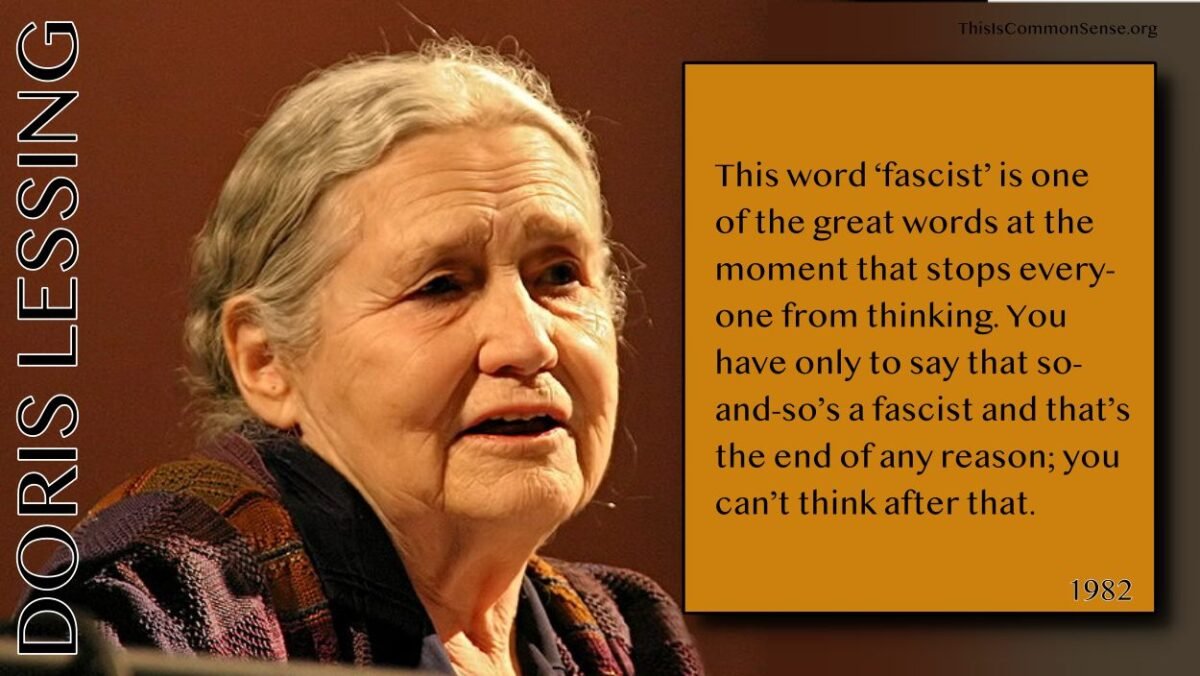
This word ‘fascist’ is one of the great words at the moment that stops everyone from thinking. You have only to say that so-and-so’s a fascist and that’s the end of any reason; you can’t think after that. I wish there could be a ban put on the use of the word. It’s an extraordinary psychological thing that if you say there is a possibility of war, the reaction is to lynch you.
Doris Lessing, in Lesley Hazelton, “Doris Lessing on Feminism, Communism and ‘Space Fiction,’” New York Times (July 25, 1982).
David Graeber

“Policy” is the negation of politics; policy is by definition something concocted by some form of elite, which presumes it knows better than others how their affairs are to be conducted. By participating in policy debates the very best one can achieve is to limit the damage, since the very premise is inimical to the idea of people managing their own affairs.
David Graeber, Fragments of an Anarchist Anthropology (2004).
Well, That Was Quick!
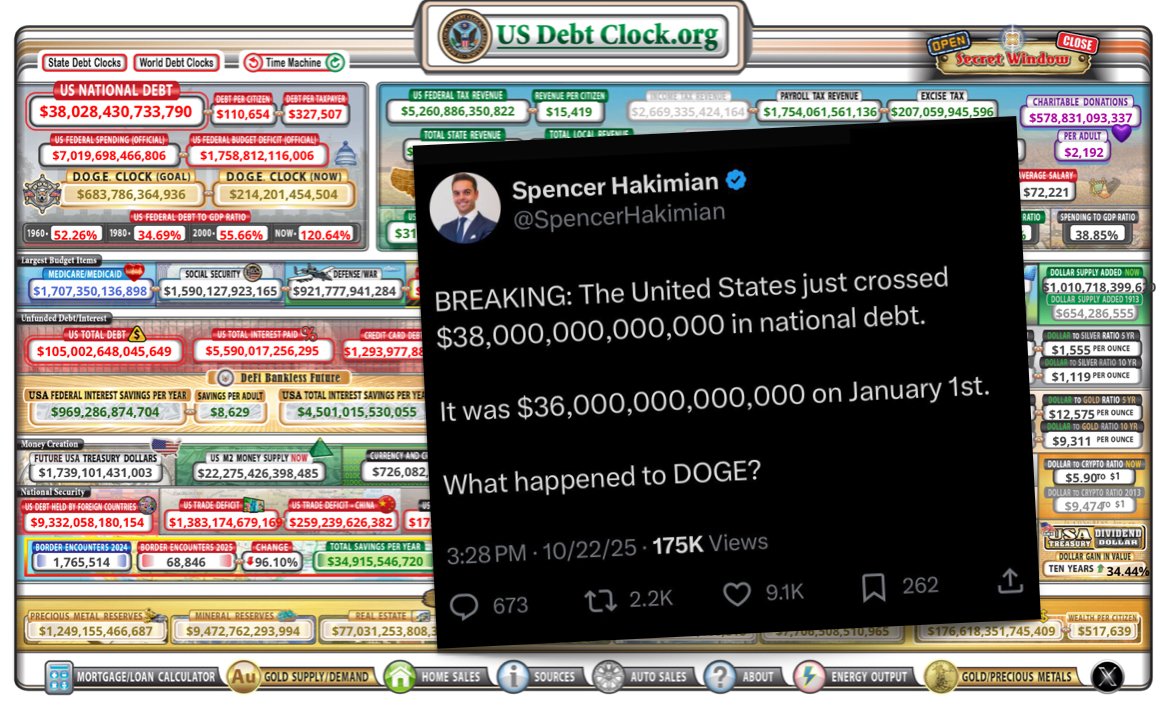
This week, the official public debt of the federal government of the United States hit $38 trillion. Many reports noted that it came quickly after hitting the $37 trillion mark, that it came during the federal shutdown, and that only during the pandemic did debt accumulate faster:
Reports were widely published, but were they widely read? Is this just ho hum?
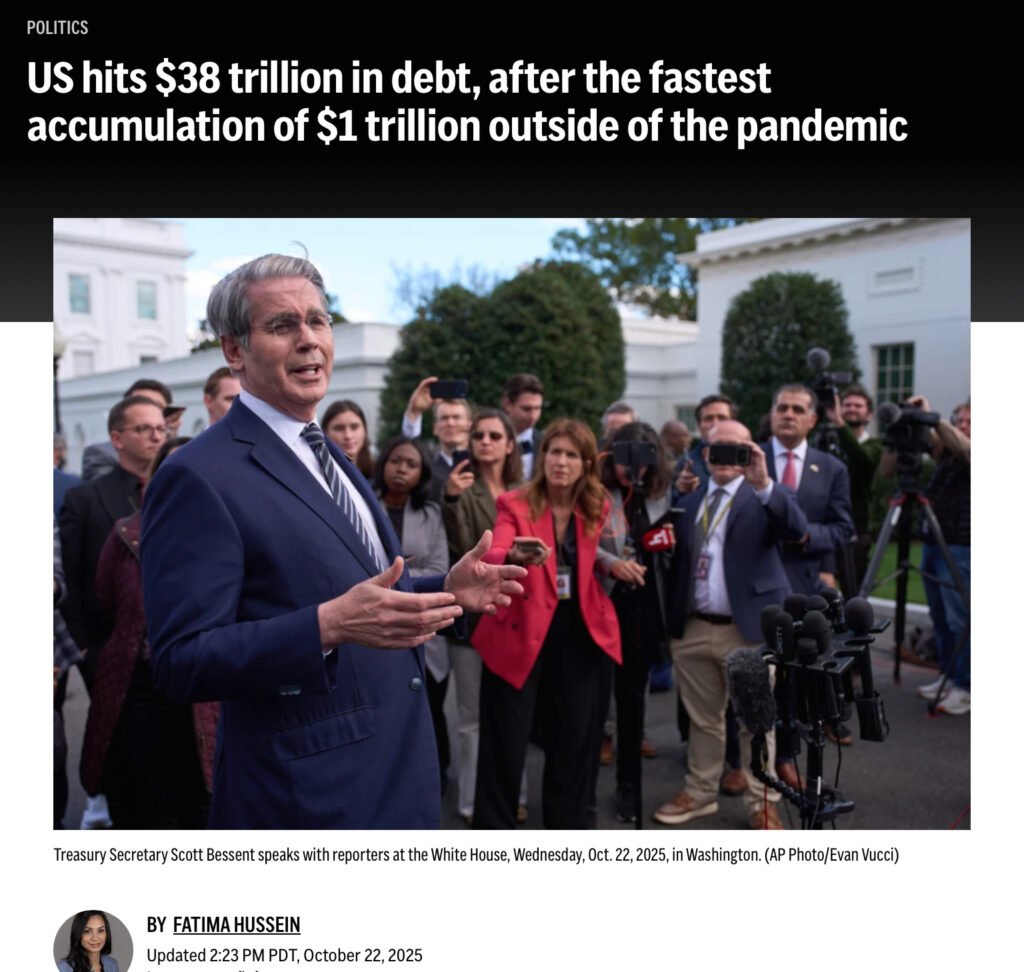
This space last hosted news on debt accumulation markers in the trillions in mid-June. About two months later, the U.S. gross national debt surpassed $37 trillion (August 11, 2025), according to the U.S. Treasury Department’s daily financial report. This milestone came years earlier than the Congressional Budget Office’s 2020 projections, which had anticipated it after fiscal year 2030.
Seeking to illustrate the increased frequency of debt accumulation milestones, we offer this (with help from Grok):
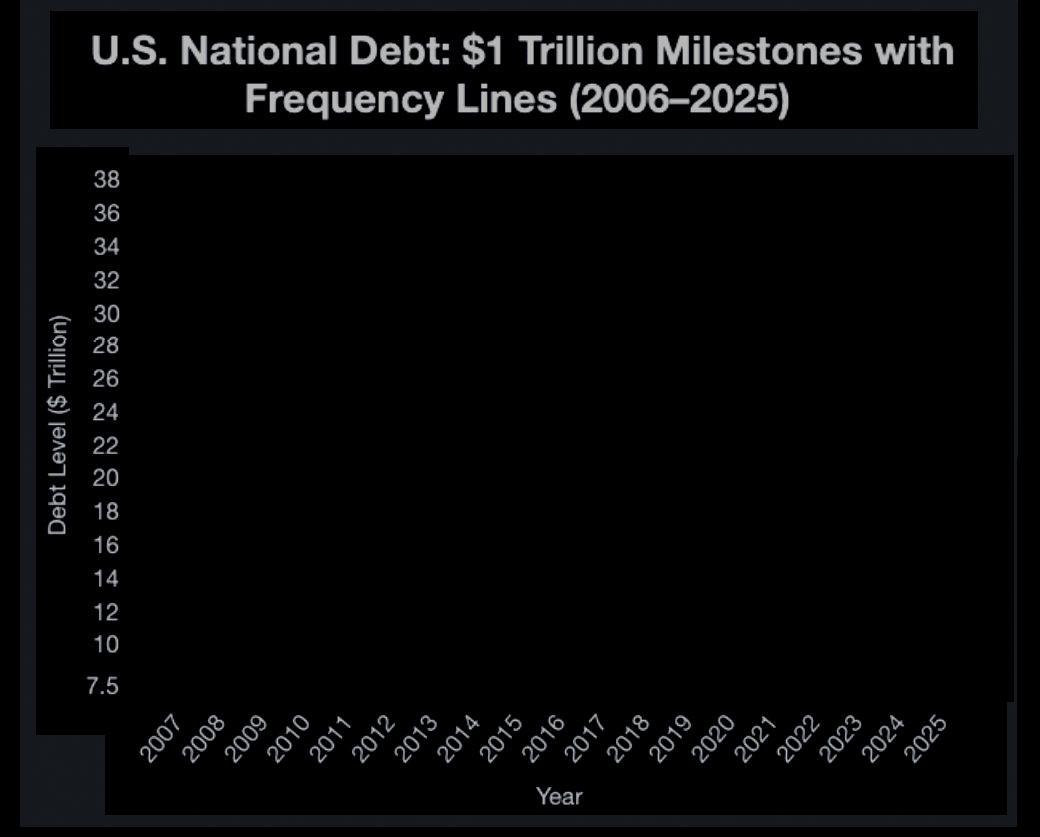
The Peter G. Peterson Foundation has a number of graphs related to the subject:
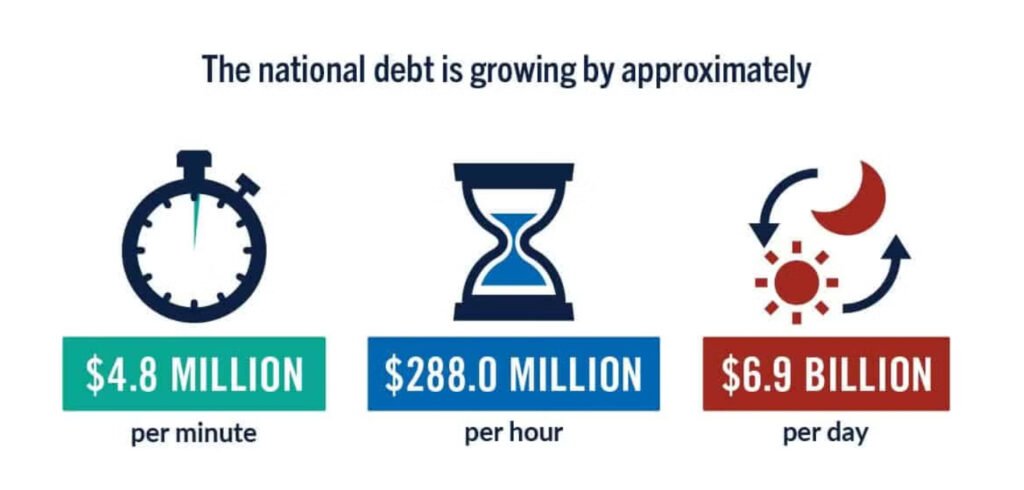
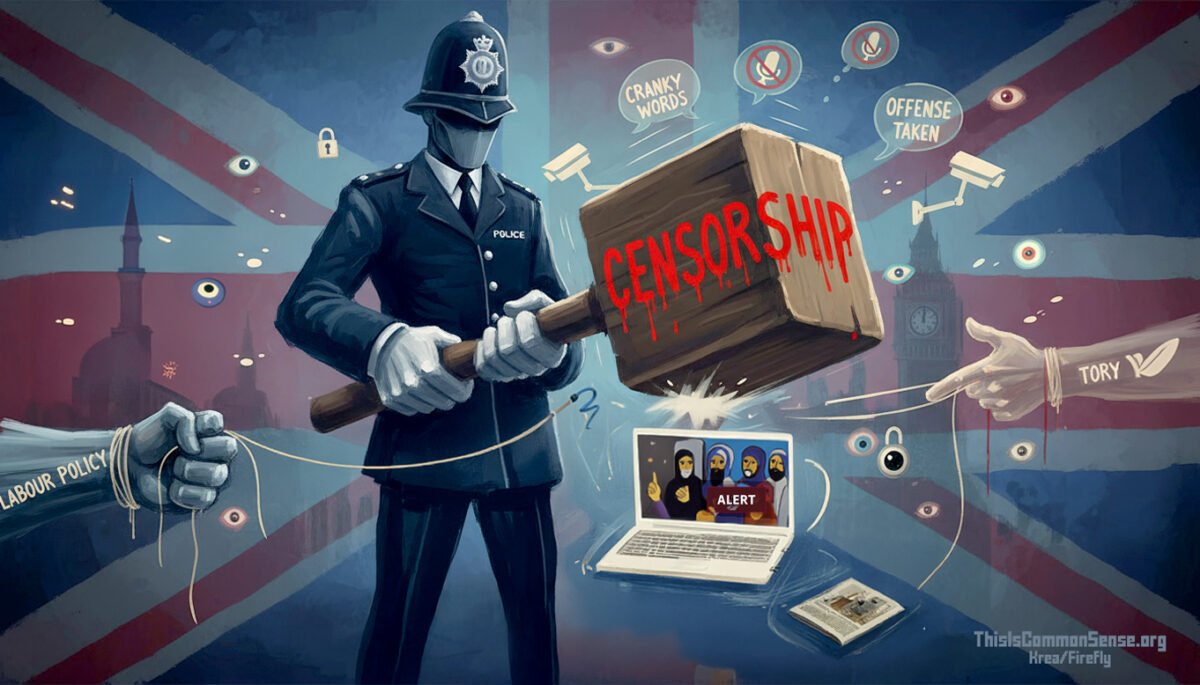
We hear so much bad news about censorship coming out of the United Kingdom that it’s almost shocking when something good happens instead.
That good news is a retreat from harassing innocent people for posting online too freely for the taste of British police enforcers.
In the big picture, the change in policy by the Metropolitan Police Service is but a minor tactical withdrawal in the pursuit of a censorship agenda that is otherwise proceeding on all fronts. It’s not so minor for people like, say, comedy writer Graham Linehan.
Several weeks ago, Linehan was arrested at Heathrow Airport by five armed officers.
“I was arrested at an airport like a terrorist, locked in a cell like a criminal, taken to hospital because the stress nearly killed me, and banned from speaking online.” His sin was posting a few tweets critical of transgender activists.
The charges against Linehan have been dropped.
And from now on, says the Met, it will stop investigating “non-crime hate incidents.” A spokesperson explains that the commissioner “doesn’t believe officers should be policing toxic culture war debates.…”
The “non-crime hate incidents” will still be logged, though.
The policy of harassing Britons for cranky words has been softened before, by the Tories. When Labour came in, the new government promptly hardened things again.
And further caution: Met policy is not government policy.
So this particular hammer for banging upon speakers daring to offend the easily offendable could come swinging down again at any moment.
This is Common Sense. I’m Paul Jacob.
Illustration created with Krea and Firefly
See all recent commentary
(simplified and organized)
See recent popular posts
An Uprising

Budapest (10/23/1956) — The Hungarian Uprising begins when a delegation of students enter the building of Magyar Rádió to broadcast their demands for political and economic reforms to civil society, but are detained by security guards.
An Auctorial First
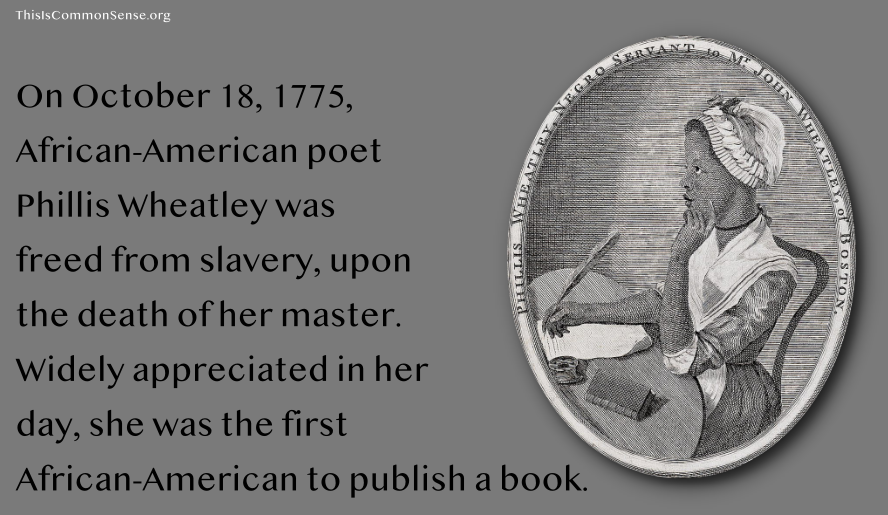
On October 18, 1775, African-American poet Phillis Wheatley was freed from slavery, upon the death of her master. Widely appreciated in her day, she was the first African-American to publish a book.